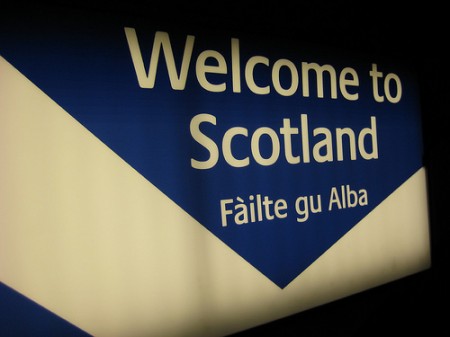
Recent elections in Scotland were historically significant. For the first time in history, the Scottish National Party (SNP) has won the majority in the Scottish parliament. In the previous term, the SNP only managed to constitute a minority government. But more than the remarkable majority achieved this year, it is one of the party’s main goals that is now in the spotlight: obtaining Scottish independence from the United Kingdom.
One might think that the way for independence is clear now, after the vote of confidence given by the Scots to the SNP. But this assumption is misleading. The election of the SNP should not be mistaken for a popular demand for independence. Recent studies show a clear objection to independence and attitudes haven’t changed much since. Two years ago an opinion poll commissioned by BBC Scotland confirmed that even though the population would like the government to hold a referendum, only 38% would actually vote for independence.
But what made the majority vote for the National Party, if it wasn’t the independence issue? Some analysts point out to the importance of the strategic abilities of Alex Salmond, leader of the SNP, to collect votes. The damaged image of the Conservative and Liberal parties certainly also gave him a hand. Both parties have endorsed controversial deficit reduction plans at the UK Parliament, and the Scots have demonstrated their strong disapproval through these elections.
Alex Salmond and his party are aware that the smashing victory is not due to a new will of the Scots for self-government. And playing the card of the referendum, without a clear support of the population, could reverse their momentum. So it is not surprising to see Salmond’s intention to push it to the end of the term. That can give him the necessary time to cement his position and call more Scots to endorse the idea of an entirely sovereign state.
This move has already produced an interesting role shift in the UK. Conservatives, Labour and Liberal Democrats clearly oppose the idea of an independent Scotland and haven’t been keen on holding a referendum. But they will be the ones pleading for it, and soon. They believe that the sooner the poll, the bigger the chance that the Scots reject independence. Postponing the referendum will only increase the likelihood for Salmond to succeed in altering public opinion.
Prime Minister David Cameron has shown no intention to intervene in the referendum’s timing, but many politicians are urging for a snap referendum. The timing to hold the independence referendum is seen as crucial for the future of Scotland, and parties seem to be taking it very seriously. Some see the realization of this referendum as inevitable. But when to do it is a decision that will obviously influence its outcome.

